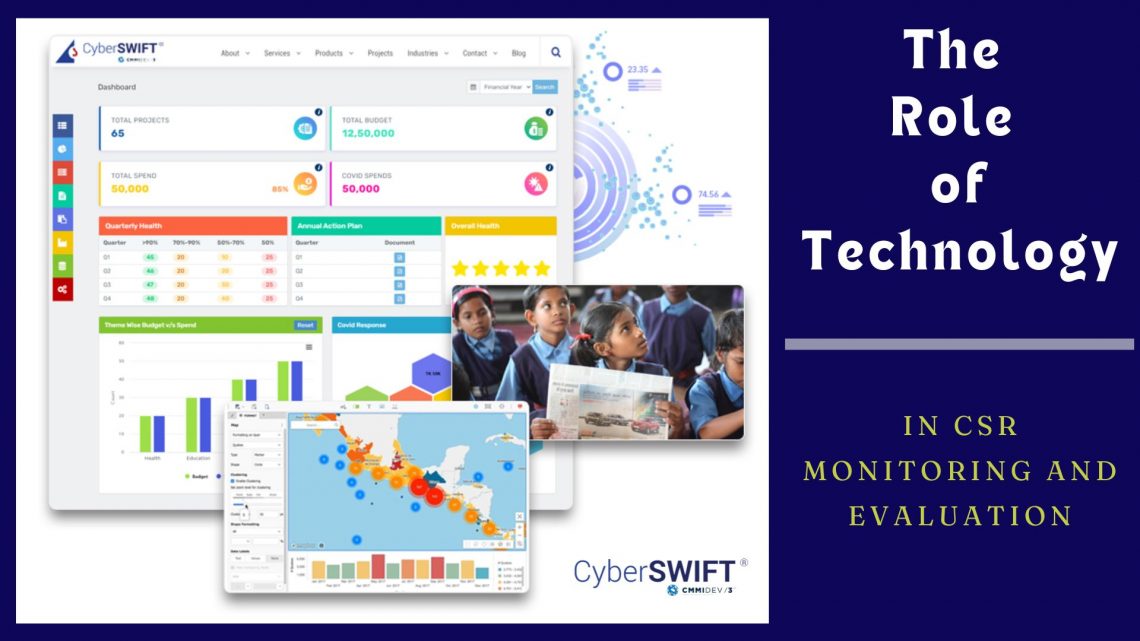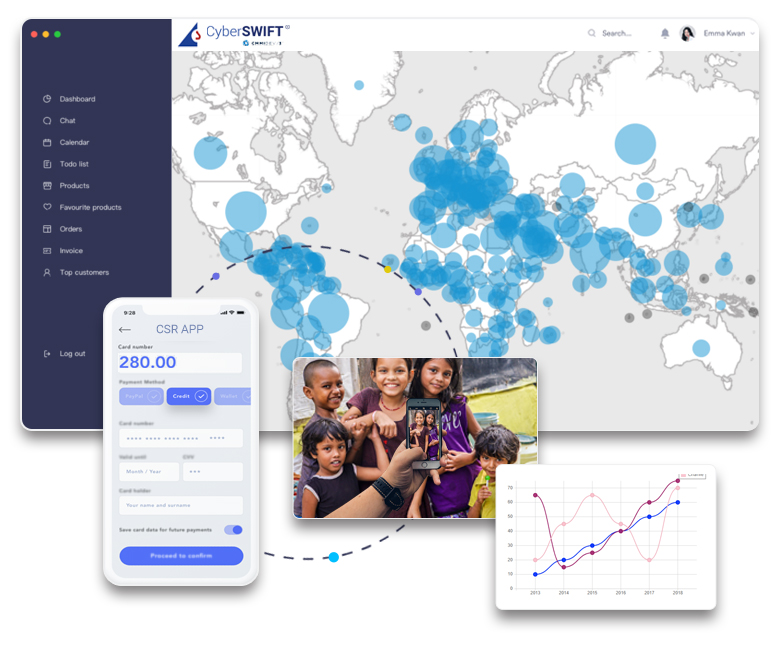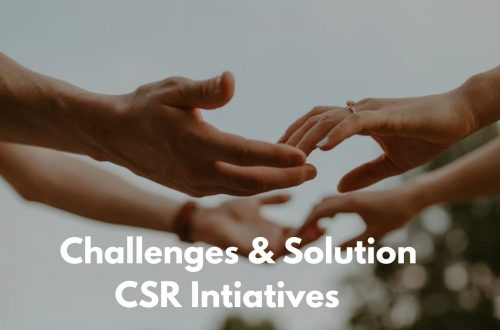
The Role of Technology in CSR Monitoring and Evaluation
Corporate Social Responsibility (CSR) has evolved from a voluntary practice to a strategic necessity for organizations. Businesses are increasingly being held accountable for their social, environmental, and governance impacts. As a result, CSR management has become integral to corporate governance and strategic management. One of the critical aspects of effective CSR is the monitoring and evaluation (M&E) of projects and initiatives to ensure they align with the company’s goals, stakeholder expectations, and societal needs. In this context, technology is playing a transformative role, enhancing the efficiency and effectiveness of CSR monitoring and evaluation processes.
The Growing Importance of CSR Monitoring and Evaluation
Monitoring and evaluation are crucial elements in CSR management. They ensure that CSR initiatives deliver the intended social and environmental impacts while also helping businesses track their progress and measure the return on investment. Key areas where monitoring and evaluation are critical include:
- Corporate Social Responsibility & Environmental Management: Ensuring CSR initiatives minimize environmental harm and support sustainability efforts.
- Corporate Social Responsibility in Strategic Management: Aligning CSR initiatives with long-term business goals.
- Corporate Responsibility Management: Managing the overall responsibility a business takes for its social and environmental impacts.
In the past, CSR monitoring relied on manual processes that were time-consuming and prone to errors. With the rise of digital tools and platforms, companies now have the ability to streamline their CSR efforts, enhance reporting accuracy, and gain real-time insights into the performance of their CSR projects.
How Technology Enhances CSR Monitoring and Evaluation
Technology offers a range of solutions that improve both the efficiency and effectiveness of CSR management. From automating data collection to leveraging advanced analytics for impact assessment, digital tools can transform the way businesses monitor and evaluate their CSR activities.
1. Automation and Data Collection
One of the biggest challenges in CSR management is gathering accurate data from various stakeholders, including employees, communities, and supply chain partners. With the advent of digital tools such as mobile applications, cloud platforms, and the Internet of Things (IoT), data collection has become more seamless and efficient.
2. Real-Time Monitoring
Digital tools enable companies to monitor CSR initiatives in real time, offering visibility into project performance and allowing for quick adjustments where necessary. This is particularly important in CSR change management, where organizations may need to adapt their strategies based on evolving circumstances. Real-time dashboards can provide insights into project progress, resource allocation, and community engagement, allowing managers to make data-driven decisions.
For example, a company investing in CSR initiatives to improve water sanitation in rural areas can use real-time monitoring tools to track the progress of infrastructure development, water quality improvements, and community satisfaction. This helps ensure that the project stays on track and delivers the expected social impact.
3. Advanced Analytics and Impact Assessment
One of the most significant advantages of using technology in CSR monitoring is the ability to leverage advanced analytics for impact assessment. These tools help businesses assess the effectiveness of their CSR initiatives, providing a clear understanding of their social, environmental, and economic impact.
Through machine learning and artificial intelligence (AI), companies can analyze large datasets to identify trends, measure outcomes, and predict future impacts. For example, AI-driven social responsibility in management tools can analyze community feedback, assess stakeholder engagement, and predict how a project might affect local economies or the environment over time. This helps companies fine-tune their strategies for maximum positive impact.
Key Technologies Enhancing CSR Monitoring and Evaluation
Several technologies are revolutionizing how businesses manage and monitor their CSR initiatives. These tools provide organizations with deeper insights into their CSR activities, help measure the social and environmental impact, and facilitate better communication with stakeholders.
1. CSR Management Software
Corporate Social Responsibility management platforms provide a centralized system for managing, monitoring, and reporting CSR activities. These platforms enable companies to track multiple CSR initiatives simultaneously, ensuring compliance with regulations and best practices. Additionally, they can integrate with existing business management systems to streamline processes and improve efficiency.
Many platforms also offer features for automating CSR fund management, which helps businesses allocate and track the usage of CSR funds more effectively. This ensures transparency and accountability in CSR spending, enhancing a company’s reputation and trust with stakeholders.
2. Blockchain for Transparency
Blockchain technology is gaining traction in CSR monitoring for its ability to provide transparency and traceability. In CSR supply chain management, for instance, blockchain can be used to verify the ethical sourcing of materials, ensuring that companies comply with labor laws and environmental regulations. Blockchain can also be used to document and verify CSR initiatives, making it easier to audit and report on the outcomes.
Blockchain’s immutability helps companies ensure that data regarding their CSR initiatives—whether related to sustainability, social responsibility, or governance—is accurate and cannot be tampered with, fostering trust among stakeholders.
3. Big Data and Predictive Analytics
Big data is transforming CSR evaluation by providing businesses with large volumes of structured and unstructured data that can be analyzed to understand trends, measure performance, and predict future outcomes. Predictive analytics can help companies anticipate the potential social, environmental, and financial impacts of their CSR activities. For instance, by analyzing patterns in community health, businesses can predict the long-term outcomes of CSR initiatives focused on public health improvements.
This data-driven approach to CSR business management allows companies to make informed decisions, adapt strategies in real-time, and maximize the positive impact of their initiatives.
The Impact of Technology on CSR Reporting and Stakeholder Engagement
Effective CSR requires clear communication and engagement with stakeholders, including employees, customers, investors, and communities. Technology plays a pivotal role in enhancing CSR reporting and stakeholder engagement.
Digital Reporting Tools: Cloud-based reporting tools can generate real-time, automated reports that highlight the key achievements and challenges of CSR projects. These reports can be shared with internal and external stakeholders, ensuring transparency and accountability.
Stakeholder Feedback Systems: Digital tools allow businesses to gather feedback from communities, customers, and employees regarding their CSR initiatives. This feedback can be analyzed using sentiment analysis and AI tools to assess public perception and adjust strategies accordingly.
Conclusion: The Future of CSR Monitoring and Evaluation
As technology continues to advance, the role of digital tools in CSR monitoring and evaluation will only become more significant. From improving the efficiency of CSR management processes to providing real-time insights and enhancing impact assessments, technology is helping companies become more accountable, transparent, and effective in their CSR efforts.
Incorporating these technological advancements into CSR and environmental management, corporate social management, and strategic management ensures that businesses not only meet their legal obligations but also contribute to a sustainable future. By leveraging the power of automation, big data, blockchain, and advanced analytics, companies can elevate their CSR strategies and deliver measurable social, environmental, and economic benefits.

A seasoned professional and dedicated customer advocate, he is an IIM graduate with extensive experience across information technology, the social sector, and consulting. Throughout his career, he has partnered with numerous prominent large enterprises and is currently focused on the business aspects of TechCSR. His expertise spans strategic planning, data analysis, stakeholder engagement, sales strategy, and negotiation. Outside of work, he enjoys unwinding at scenic hill stations.






